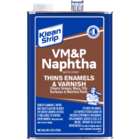Toluene is neither viscous nor of low volatility. It's readily available in high purity and is volatile enough to evaporate easily. Boils roughly the same as water. Should work as well as lighter fluid. If you store your rifles muzzle up and action open I'd put a piece of Kleenex in the chamber so that anything that runs down won't get into the trigger area. Maybe it's all the bolt lube that's the issue. Frankly, I never saw a reason to oil a stainless bore. OMMV. A small cheap hair dryer can be used to blow dry the trigger after cleaning. It matters not if you use lighter fluid, xylene, charcoal starter as long as it will dissolve any oils in the trigger. Acetone and alcohols are less likely to do so.
Toluene has lower volatility as directly compared to lighter fluid, acetone, hexane, or other organics that have been discussed in this thread for use in cleaning triggers. The boiling point of toluene is ~111 degrees C, even higher than that of water. That is anywhere from 2 to 4 times higher
relative to the other solvents I mentioned and actually IS quite high for an organic solvent you want to use as a cleaner, then evaporate away the remainder. A comparison of their vapor pressures will tell the same story. The viscosity of toluene is ~1.5 to 2 times greater than the other solvents mentioned.
What that basically means is that toluene is more difficult to get rid of than the other solvents mentioned. Xylenes would be even worse. Does that mean you can't use them to clean a trigger? Of course not. As you noted, you could theoretically use almost any moderate to fairly non-polar organic solvent that wasn't acidic or corrosive and get away with it. It would certainly be better than not cleaning the trigger at all. But toluene wouldn't be my first choice due to its physical properties, as well as for a couple other reasons. After I clean my triggers with lighter fluid, I use a hair dryer to heat up the housing and internal parts for 30 seconds or so prior to re-assembling the rifle. This approach works quite well, and would probably also work well with a less volatile solvent such as toluene, even if it required just a bit more time. I have always used plain charcoal lighter fluid and it works just fine, even if it may be a bit more heterogenous mixture than is found in pocket lighter fluid. It's cheap, readily available, and it works.
The primary reason for flushing a trigger with lighter fluid is to remove dust and other fine particulates than get into the mechanism and potentially interfere with its function. In that light, it is doubtful that lighter fluid or any of the pother organics mentioned are actually
dissolving the bulk of the undesirable material. Rather, they are more likely just
flushing most of the particulates out. The fine insoluble particulates flushed out of a dirty trigger are quite easy to see as almost a black dust if you collect the runoff in a glass dish. That is also the primary reason why using a solvent that evaporates easily is desirable; it's easy to completely get rid of it after use. In fact, some shooters have suggested that lighter fluid actually leaves a very light coating of an oily substance that may act as a beneficial lubricant. I haven't personally noticed that particular effect, but it could be due to some long chain alkyl trace component of relatively low volatility, which could easily be present in the lighter fluid mixture. Of course, the downside to that is that any traces of organics that remain in the trigger mechanism long term are likely to increase potential problems over time by trapping more fine particulates than would otherwise accumulate.
Regardless of the solvent someone chooses, routine trigger cleaning is smart idea and a good preventative for more serious problems that have a habit of showing up at the worst possible times, like in the middle of an important match.











